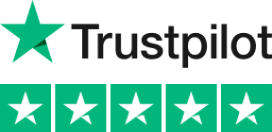Real estate tokenization allows investing in real estate from small amounts and with greater liquidity than in the traditional model. An innovative way to generate passive income, without the headaches of buying an apartment or premises.
In the following lines we will see what this technology consists of, how it is applied to the real estate sector and what its risks and advantages are.
What is tokenization?
Tokenizing consists of converting a physical or intangible asset (such as a house, a work of art or an economic right) into digital units called tokens. These tokens are registered on a blockchain, a technology that allows to operate securely, transparently and without intermediaries.
The blockchain is the same technology used by cryptocurrencies. Its main advantage is that data cannot be altered once it has been recorded. Everything is written down, immutable and verifiable.
What is a real estate token?
A real estate token represents part (or all) of a property, but in digital format. It can be easily bought and sold, just like any other financial asset.
Instead of acquiring a complete apartment, the investor buys fractional shares. Each token entitles the investor to receive a proportional share of the income generated by the property (rents, capital gains from sales, etc.).
This makes real estate investment much more accessible, especially for those who do not have large sums of money.
How does real estate tokenization work?
In practice, tokenization follows this scheme:
- A platform acquires or builds a property.
- A company or asset-linked loan is created.
- This participation is divided into multiple equal parts.
- Each part becomes a digital token registered on the blockchain.
- The tokens are offered to investors through an online platform.
- The property is for rent or sale.
- Profits are shared proportionally among token holders.
It is important to clarify that, in most cases, these tokens do not grant direct ownership rights over the property, but rather economic rights.
In other words, they allow participation in the benefits generated by the investment (such as rents or the sale of the asset), but do not grant legal possession of the property or decision-making capacity over its management.
Advantages of investing in tokenized real estate
- Accessibility: Tokenization democratizes real estate investment. It is possible to participate with small amounts and access high-value real estate, something unthinkable in the traditional model.
- Liquidity: Unlike an apartment, which costs money to sell and generates expenses, tokens can be bought or sold in digital markets (as long as there are buyers). which clearly highlights why liquidity matters in investment.
- Transparency and efficiency: Blockchain technology automates processes, reduces costs and eliminates intermediaries. Everything is recorded, which facilitates investment tracking.
- Security: Data cannot be modified. This protects against fraud, although it is essential to choose reliable platforms and to protect the digital wallet well.
- Geographic diversification: You can invest in real estate around the world without leaving home. Location is no longer an issue and many costs and legal barriers are eliminated.
Risks of real estate tokenization
Like any investment, tokenization also has drawbacks:
- Profitability risks: income may be lower than expected due to non-payments, rental vacancies, unforeseen expenses, etc.
- Unreliable platforms: if you choose a platform without guarantees, you may suffer fraud or hacks.
- Uncertain legal framework: in some countries regulations are still unclear or under development.
- Technical complexity: if you don’t fully understand how tokens or digital wallets work, you can make costly mistakes.
The key is to be well informed, study the documentation and diversify.
Is tokenization the next step in real estate crowdfunding?
Tokenization is already a reality. There are platforms such as Domoblock or Reental that allow investing in real estate through tokens registered in blockchain.
However, it is still at an early stage of adoption. Unlike traditional crowdfunding, tokenization offers advantages such as greater liquidity, process automation and the possibility of operating in secondary markets.
Security tokens (digital securities representing real assets) are key to this model. Thanks to blockchain, many of the processes in the real estate sector can be digitized, reducing costs and increasing transparency.
At the legal level, regulation is also advancing. In Europe, the EU Pilot Regime allows the trading of tokenized securities on platforms based on DLT (distributed ledger) technology. In Spain, the CNMV has approved several projects within the financial sandbox, a regulated testing environment for this type of innovation.
Should you invest in real estate tokenization?
Investment in tokenized real estate offers many possibilities. It is more accessible, more liquid and more efficient than buying real estate outright.
At present, it is still an emerging alternative, with few consolidated platforms. But its potential is enormous, especially if regulatory frameworks are consolidated and secondary markets are developed.
Meanwhile, platforms such as wecity already allow investing in real estate collectively, from small amounts, through crowdfunding and crowdlending opportunities. Although they do not use blockchain, they do allow to diversify capital in specific real estate projects and generate income without the need to buy a complete property.

